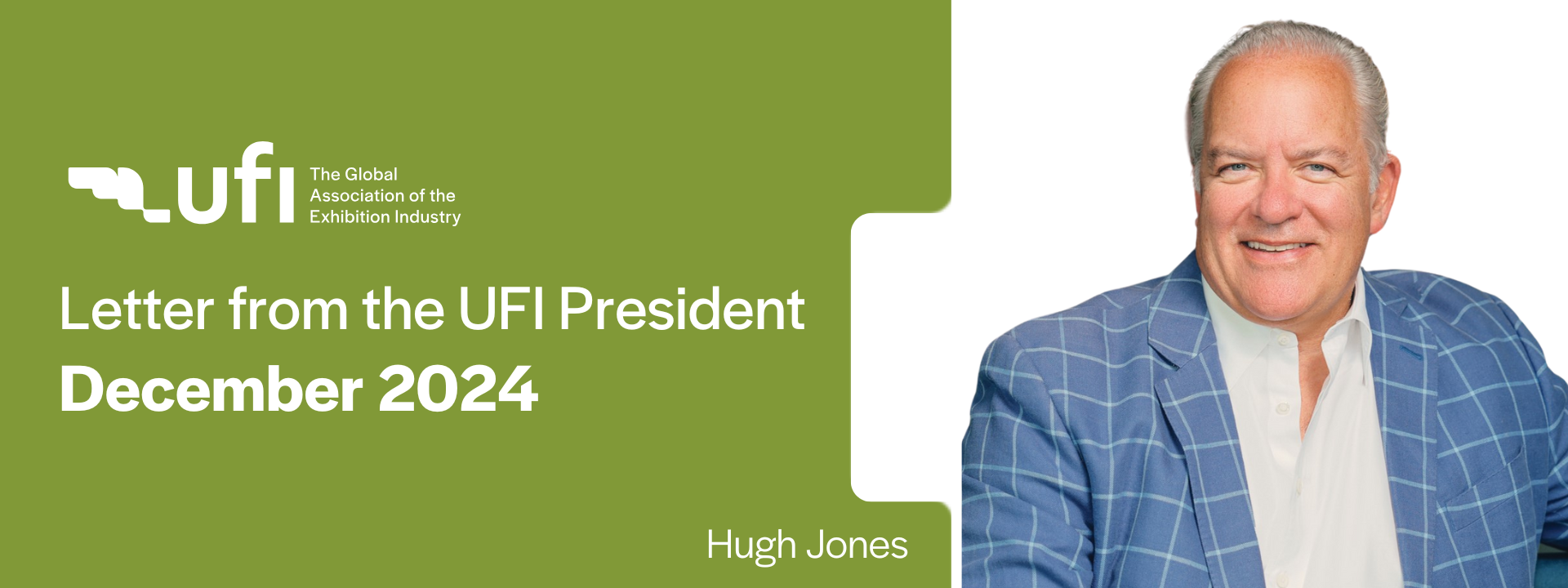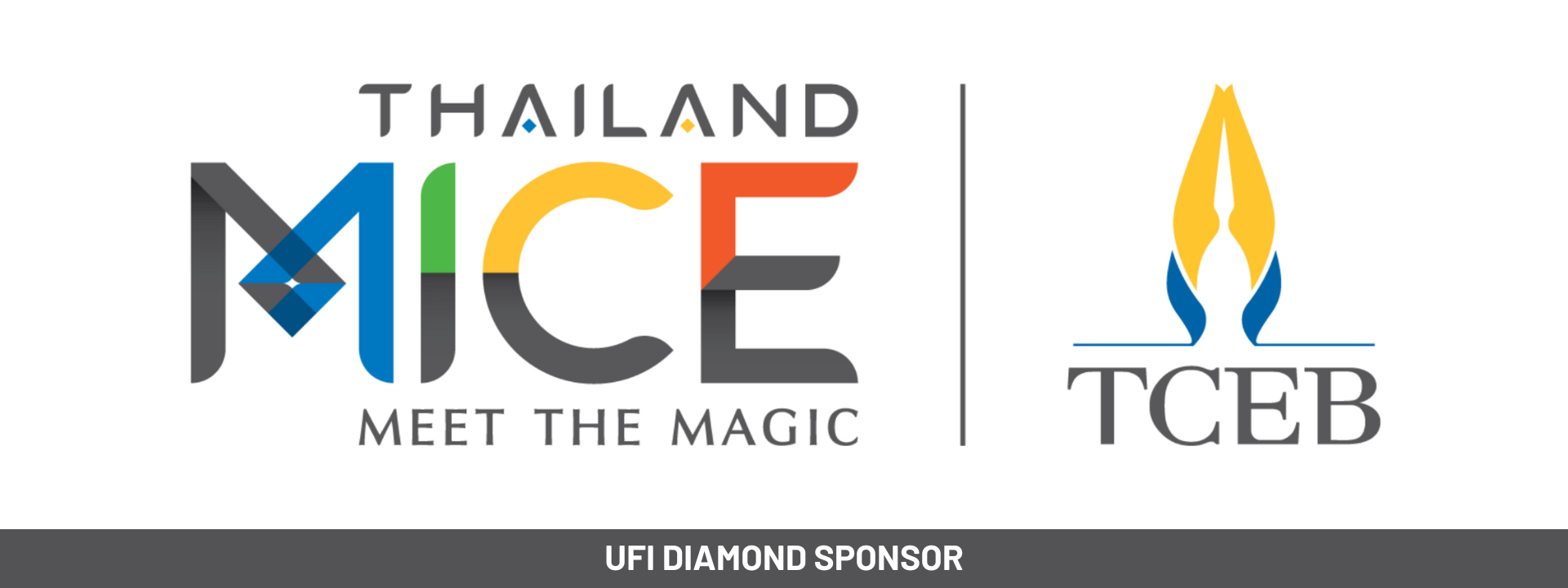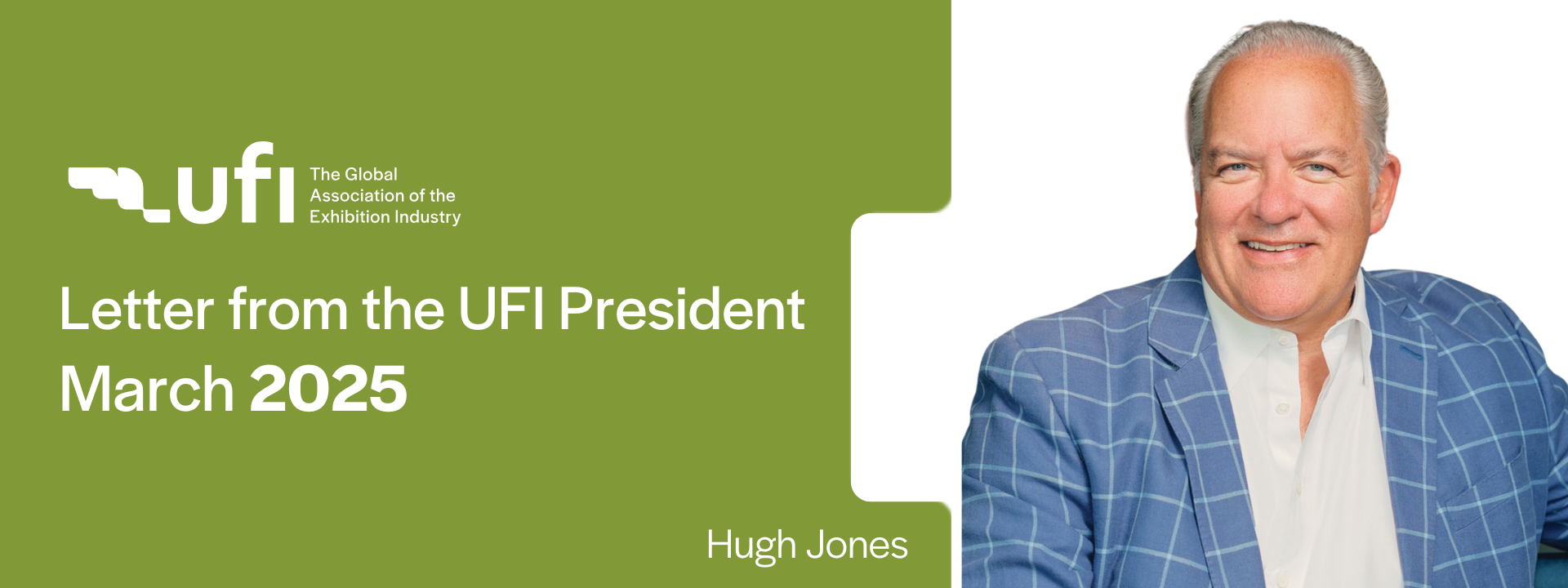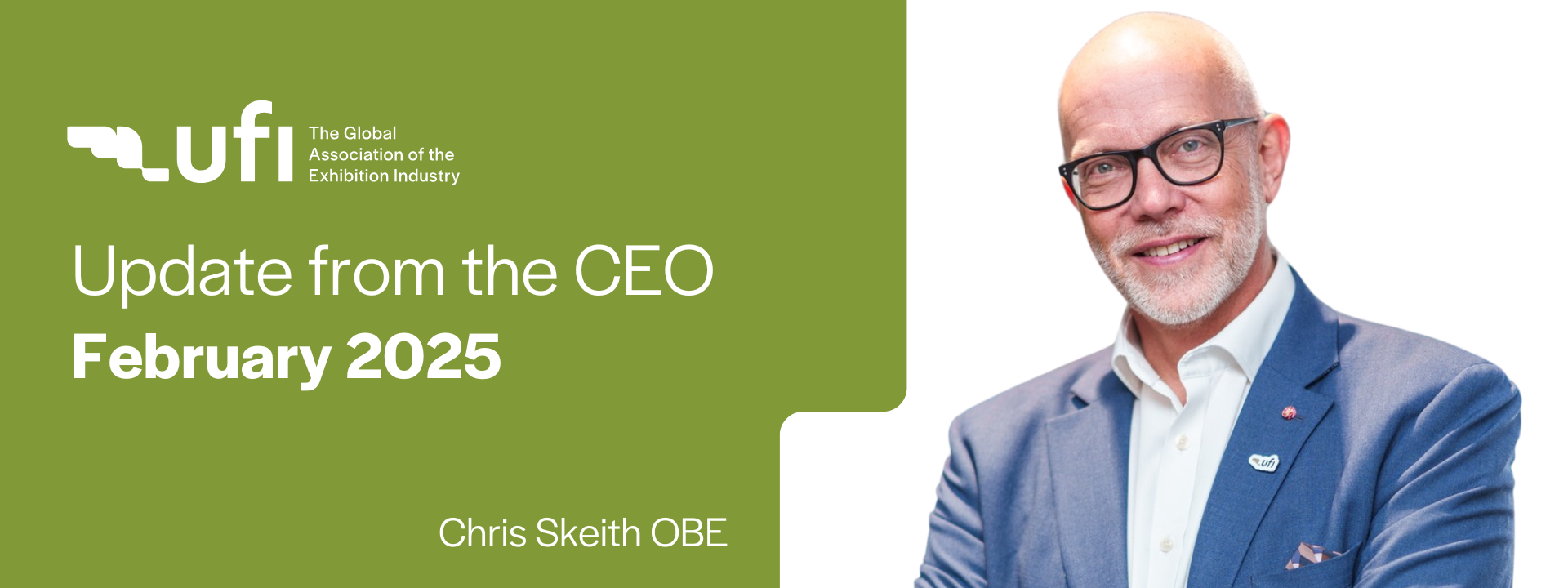Dear members, dear friends,
I am extremely happy and honoured to address you all, our global UFI community which really is the global exhibition community – as I assume the Presidency of UFI for the coming year.
As a relative newcomer to this magical industry – nearly 5 years now – I am incredibly grateful to Michael Duck who proposed me for the role! And thank you to the UFI Board of Directors, Executive Committee and all the members for this great opportunity to serve you in this role.
I want to briefly outline three priorities I would like us to collectively focus upon.
Firstly, Talent – both the talent we already have in our businesses and the diverse talent we will need to attract in the future.
There has been a good bit of research and collaboration done across the industry to really understand how to not only reach the future talent of our industry, but also on how to communicate the amazing depth, diversity and creativity of roles our community provides.
We need to share skills development across the industry to ensure that our teams are diverse, inclusive and ready for the next challenges in business, including AI. We need to look at sectors outside of the exhibitions industry who do this exceptionally well, and we need to learn from them.
UFI’s ‘Next Generation Leaders Initiative’ was launched in 2016 as an annual grant given to five industry professionals who are picked by a global jury and work on an industry-critical issue and present their results on stage at the UFI Congress. Quite a few alumni of this program have now become leaders within our industry and some are in this audience, so keep an eye on the great talent that was on stage earlier…they are part of our future.
But we all know that thousands of extraordinary people have stumbled into the events industry, and while we will continue to gain talent through chance, now is the moment to push a collaborative and concerted campaign to show people the many wonderful reasons they should be choosing our sector more proactively.
Next, Sustainability.
While we are all distracted by the challenges of the day – inflation, short term economic pressures etc – sustainability is possibly the most significant challenge we face mid- to long term.
As an industry, we need to be seen as part of the solution to the climate crisis, not as part of the problem. And let’s be clear, we will not get away with symbolism or anything that can be seen as “greenwashing.”
UFI was key in setting up the “Net Zero Carbon Events” Initiative in 2021, and we managed and grew that program on behalf of the whole events industry – way beyond exhibitions – taking the lead on exhibition-related projects while driving sustainable development initiatives specifically for our sector.
UFI’s working group for sustainable development is one of the oldest, most experienced, and most successful groups that UFI has ever created.
But we need to do more and we need to do more, together. One issue where not all the major players in our industry are aligned in their respective strategies, is offsetting projects that invest in our industry specifically, creating a funding mechanism that drives our sector’s decarbonisation. Some UFI members have begun work on this, and I am eager to see this evolve into a scenario where UFI can act as the trusted party that connects and perhaps behaves as an arms-length auditor of these interests.
We need to push ahead with initiatives focused on our exhibitions business, and we must continue to lead by example and take the wider event industry with us on this. We have to show that coming to events acts as a carbon consolidator – where else can you meet all the stakeholders for your industry, under one roof, without travelling to see them each individually and with the emissions burden that demands.
My third point: advocating on behalf of our industry.
Advocacy is one of UFI’s four core activity pillars, which includes events, research, and education. It has taken center stage in recent years and at UFI we have invested in a dedicated in-house team to drive this activity.
Today, 75 national and international exhibition industry associations are members of UFI. They have their own community, the “UFI Associations Committee” and have a seat on the UFI Executive Committee. Chris Skeith, who succeeds Kai Hattendorf as UFI’s CEO in a few weeks, actually comes from one of these associations, the AEO in the UK, and he served on the UFI Executive Committee for six years.
So what do we want? Well it’s fairly simple, we want our fair share of respect.
National and local governments are not aware of our industry, and it pains me to say that most of them think about Taylor Swift’s ERAs tour or “heads in beds” and tourism when they talk about our industry. This is mainly OUR OWN fault, as we have not really engaged properly for too long. We can achieve a lot by arguing our case of economic impact and relevance, but we also need to engage and drive the positioning of the whole sector.
UFI has pushed the global industry a lot in the past 5 years – (re)building our industry’s main global umbrella organisation “Joint Meetings Industry Council” with Kai serving an extended term as President there. Now, for the first time, we have a shared industry wide definition and policy narrative, called the JMIC Global Manifesto. Think of it as the equivalent of the United Nations’ Sustainable Development Goals for our industry.
As well as our work with JMIC (now with Adeline on the Board there), UFI has actively built relationships with global bodies relevant to our industry’s positioning, such as the OECD and ISO, the International Standards Organisation. In both instances, we are pushing to have the events industry represented as an industry in its own right, not as a sub-segment of business tourism. This is putting UFI on the global policy stage, where we deserve to be.
What we must all commit to doing is to raise the profile NOW. Use the data and make sure every event, every venue, every partner communicates the economic impact that events and trade shows bring to the host city or country. We need to engage with our geographical associations to ensure we are lobbying governments and having our voices heard.
I am very much looking forward to working with UFI members on these priorities in 2025.
Yours,
Hugh Jones, UFI President






An outstanding direction for UFI. Thanks for these bold objectives that I trust all members will support and contribute to.